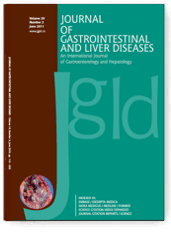
Celiac.com 07/18/2011 - People with celiac disease are relatively lucky; a simple change in diet, without any drugs, can completely reverse all symptoms in most patients and causes no side effects. But maintaining a gluten free diet is, of course, far from simple. A number of treatment options are in varying stages of development, but no one has asked celiac patients what kind of treatment they would prefer to a gluten free diet, or if they would even prefer one at all. A recent study in the UK did just that. It found that over 40% of celiac patients are dissatisfied with the gluten free diet.
Aziz et al. gave a questionnaire to 310 celiac patients and 477 controls. The first section measured their satisfaction with the gluten free diet; the second measured their use of complementary or alternative medicine by asking if they took popular oral supplements (multivitamins, kava, Echinacea, etc.); and the third assessed their views of novel therapies being developed to treat celiac disease. These include a vaccine that would be injected and would allow the consumption of unlimited gluten; peptidases or zonulin antagonists that would enzymatically degrade gluten or inhibit intestinal permeability, respectively, and would be taken orally in case of accidental or periodic ingestion of gluten; and genetic modification of wheat to reduce its toxicity.
Celiac.com Sponsor (A12):
Although more than 40% of celiac patients were unhappy with the gluten free diet, they did not use complementary or alternative medicines with more frequently than controls. This suggests that they do not view these as viable alternative treatments to a gluten free diet. Most celiac patients - 42% - said that they would be interested in a vaccine that would allow them to eat unlimited gluten, while 35% said they would prefer anti-zonulin and 23% said they would like peptidases. Both of these latter therapies would not necessarily allow for healing of the small bowel mucosa like a gluten free diet does, but either could be taken as an adjuvant or to protect against minor or occasional ingestion of gluten. Of the potential novel treatments, all patients ranked genetic modification of wheat as their lowest preference.
Adherence to dietary advice is among the lowest of all kinds of guidance given by doctors. Among celiac, strict adherence to a gluten free diet varies from 96% all the way down to 36% among different populations. As these British researchers demonstrated and noted in their conclusions, "patients with coeliac [sic] disease are keen to consider novel therapies."
Source:
- Open Original Shared Link










Recommended Comments